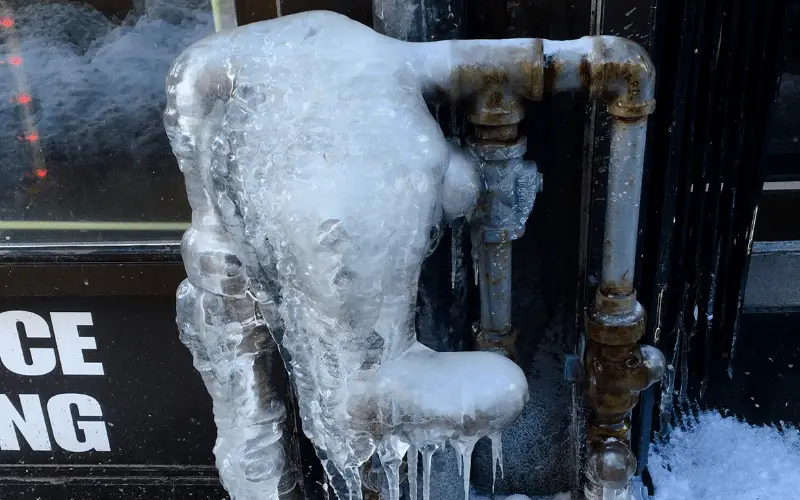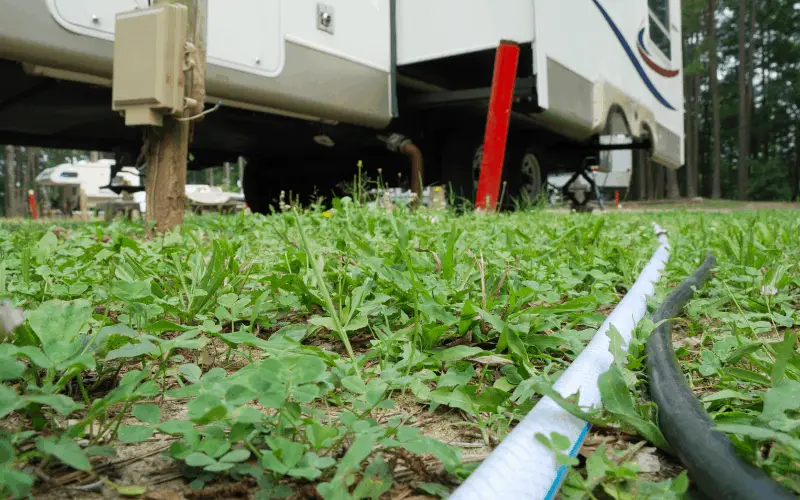Published Date: December 29, 2020
Last Updated on December 24, 2022 by Camper Front
Winter is approaching, and as an RVer, you need to winterize your motorhome and get set for the cold weather days. But, since the actual essence of winterization is to prevent the systems that hold up water from freezing due to low temperature, one may ask, “At what temperature do RV water lines freeze?”
Expectedly, the waterlines would freeze at the standard freezing temperature – 32oF. However, there are some factors that could halt/prevent the water lines from freezing at that temperature.
For example, if the outside temperature is 32oF, there’s the possibility that the inside temperature isn’t up to that level, and if your rig’s water lines are insulated, they won’t freeze yet.
Table of Contents
At What Temperature Do RV Water Lines Freeze?
There is no straightforward answer to this question. Unprotected RV water lines will obviously freeze when the temperature falls below 32oF while protected ones would still be okay at the same temperature. The exact freezing temperature will vary based on the location of the water lines.
If your RV water lines are protected or passed through a heated bay, you shouldn’t panic about them freezing up. Also, it is important to say that, because it’s 32oF outside doesn’t mean your RV water lines have reached that temperature.
Generally, outside temperatures would fall to a low of 20oF to cause internal water lines and pipes to freeze. When the water lines freeze, there’s every tendency they’ll burst or have various leaking points, and this is a costly repair to deal with.
However, modern RVs come with PEX (plastic water lines). Such water lines are also liable to freezing, but when that happens, the lines would expand (although PEX has an expansion limit) to accommodate the frozen water. This simply means you won’t face a critical situation as with metal water lines.
What Happens When RV Water Lines Freeze?

This has been partly explained above; the lines will expand and likely burst once the water stored inside freezes. You will need to fix the RV water lines after unfreezing the water inside because they may be seriously leaking or badly damaged due to forceful expansion.
When your water lines are leaking, it could make things look messy, and most times, fixing bad RV water lines can be very expensive. Hence, adhering to precautions is the best thing to do. Alternatively, you can insulate your RV water lines if you constantly travel in winter.
How To Protect RV Water Lines From Freezing
- You can pump RV antifreeze into the system; RV antifreeze is non-toxic and a reliable way to checkmate freezing for winter campers/RVers.
- Use heaters to keep your tanks and plumbing systems warm when temperatures dip below freezing.
- You can also use heat tapes to prevent your RV water lines from freezing
Either of these winterization tips will help to keep your RV water lines in good shape all through the winter season. Also, they can come in handy when you travel to specific locations where you have to deal with low temperatures in and out of seasons.
>>> Read Also: What is The Best Motorhome For Cold Weather?
Conclusion
So, at what temperature do RV water lines freeze? We’d say that you should be concerned about freezing when the temperature outside is at 32oF or lower.
Having to deal with frozen RV water lines can be hectic; we’d advise that you practice some preventive measures to keep your RV water lines warm and safe from freezing.
Also, it is important that you know the freezing point for your RV water holding tanks. Well, they’d freeze at almost the temperature that’d freeze the water lines. However, if the water tanks are close to the furnace bay, they could be safe from freezing due to heat.
In summary, all water holding tanks/systems on your RV would likely freeze at 32oF, which is the same as 0oC.

